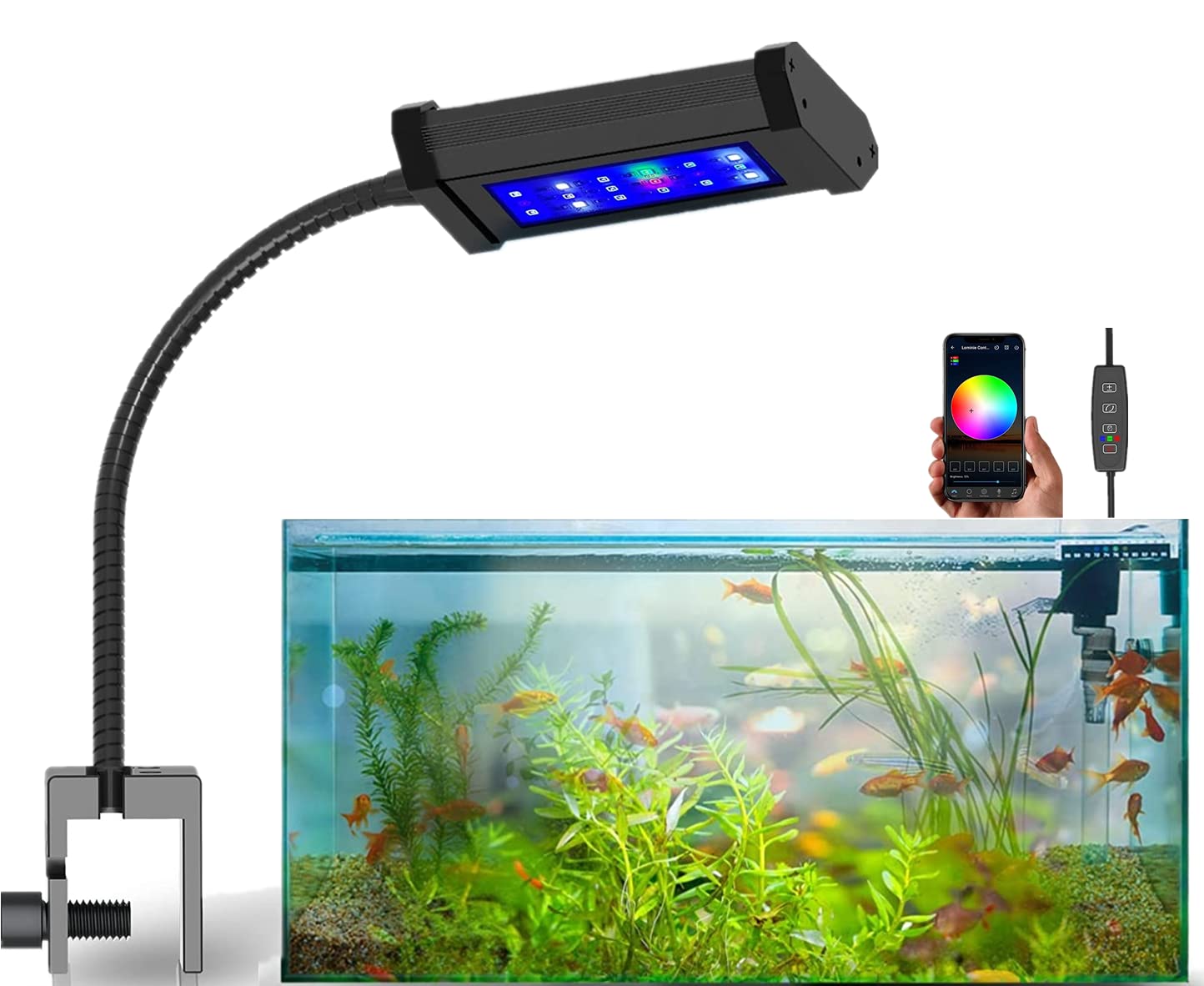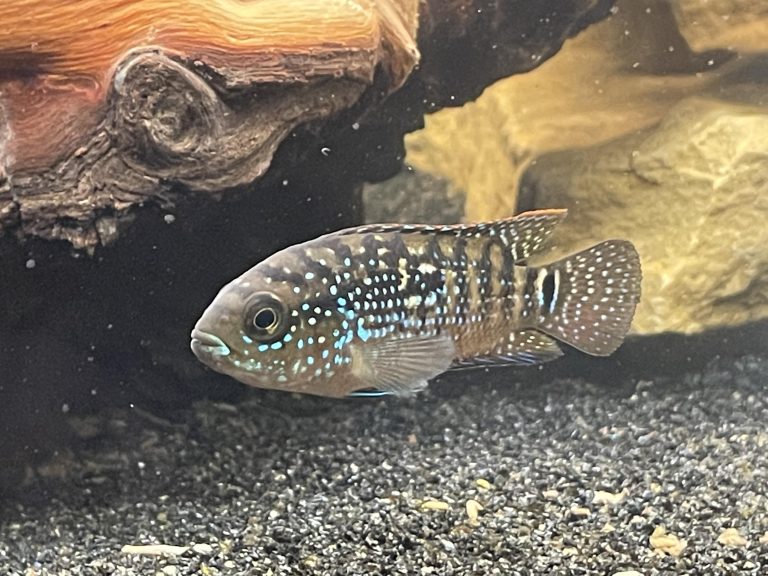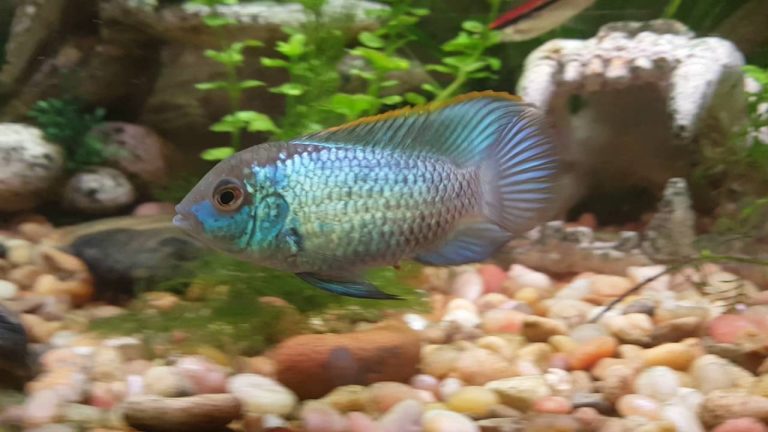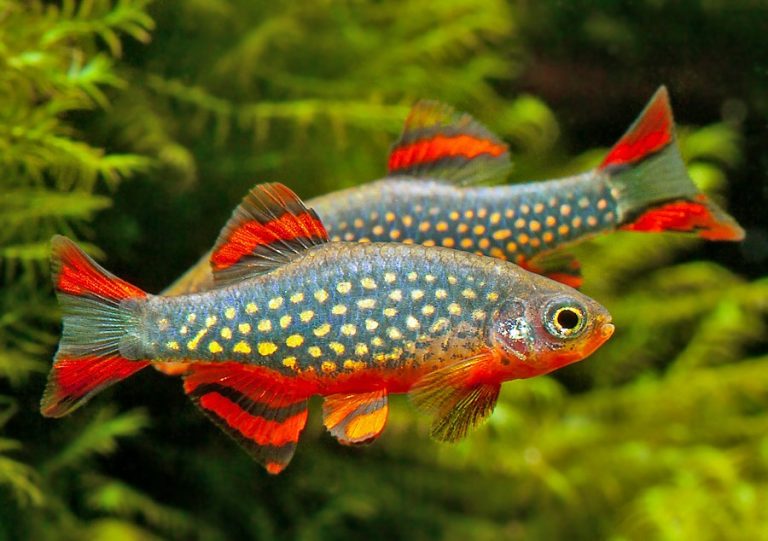Betta Blues: Exploring Whether Blue Light is Beneficial for Bettas at Night
Bettas do not require blue light at night and it may disrupt their sleeping patterns. Betta fish are a popular choice for aquarium enthusiasts due to their vibrant colors and active personalities.
As with any pet, it is important to provide the best care possible to ensure their health and well-being. One common query among betta owners is whether or not blue light is suitable for their aquariums at night. While blue light can enhance certain colors in the fish and plants, it is not necessary for their growth or survival.
In fact, blue light at night may disrupt their natural sleep cycle and cause them stress. In this article, we will explore the reasons why bettas do not require blue light at night and how it can affect their health.
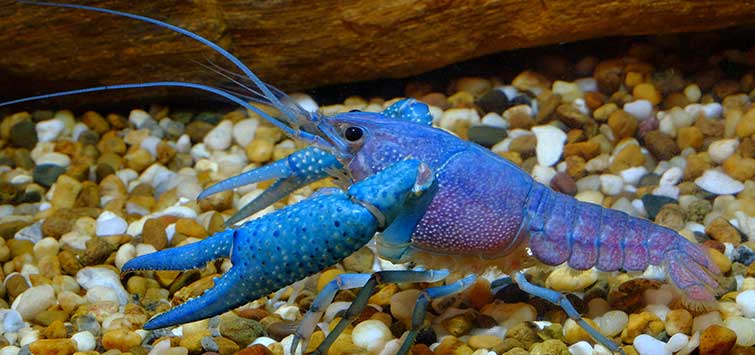
Credit: www.tfhmagazine.com
Betta Fish Behavior At Night
Bettas, also known as siamese fighting fish, are popular pets known for their vibrant coloration and fancy fins. They are also known to be relatively low maintenance and easy to care for, making them a favored choice for new fish keepers.
However, one question many people ask is, “do bettas like blue light at night? ” To answer this question, we need to first understand the behavior of bettas at night.
Bettas And Their Sleep Patterns
Bettas are diurnal, which means they are active during the day and tend to rest at night. Their sleep patterns are more like daily naps than how humans sleep. At night, bettas become less active, their metabolism slows down and they usually stay still at the bottom of the tank unless they startle or wake up for a moment.
Bettas And Natural Light
In the wild, bettas tend to live in shallow waterways in southeast asia with plenty of natural light exposure. They rely on the sun’s natural light cycle to regulate their sleeping and waking periods. Therefore, it is understandable that artificial light could interfere with their natural sleep patterns and potentially cause stress for your betta.
How Blue Light Affects Bettas At Night
Blue light can keep your betta more active at night, especially if it is too bright. This kind of lighting tricks your betta’s brain into believing it is still daytime, and they won’t rest properly. Your betta may become sleep deprived and develop health problems.
However, it is important to note that some blue light aquarium bulbs have adjustable brightness and are specially designed to mimic a betta’s natural habitat.
Why Blue Light Is Used In The Fishkeeping Industry
The fishkeeping industry uses blue light in aquariums as a form of ambient lighting, which is proven to enhance fish coloration, coral growth and plant growth. Blue lights can create a soothing and tranquil atmosphere both for the betta and the fish keeper.
The blue hue can also help reduce the visibility of algae and other unsightly elements in the aquarium.
The Controversy Surrounding Blue Light For Bettas
While ambient blue lighting can be beneficial, it is important to note that there is some controversy surrounding blue light for bettas. Some studies suggest that too much blue light can cause retinal damage and stress for your fish. Additionally, some betta fish enthusiasts argue that a lack of exposure to natural light can lead to health problems for your betta fish.
Despite the controversy, many betta fish owners opt for blue light in their aquariums with adjustable brightness levels to provide their fish with the optimal environment. It is crucial to choose a light that mimics natural sunlight and has an adjustable brightness option to avoid any potential negative effects on your betta’s health.
Bettas are diurnal fish that need the appropriate light conditions to maintain their natural sleep patterns. While blue light can be harmful in excess, it can be a great addition to your aquarium when used in moderation and appropriately. By mimicking natural light changes and providing a healthy, stimulating environment, you will ensure your betta has a comfortable and stress-free life.
Benefits And Drawbacks Of Blue Light For Bettas
Do bettas like blue light at night: benefits and drawbacks of blue light for bettas
Blue light is a popular choice for aquarium keepers who want to provide a soothing ambiance for their fish at night. However, in the case of bettas, is blue light a good choice, or are there better options available? We explore the benefits and drawbacks of blue light for bettas.
Advantages Of Using Blue Light For Bettas At Night
Blue light does offer several advantages for bettas at night.
- Blue light is great for simulating the natural moonlight, which can have a calming effect on bettas. It helps them sleep better, making them more active during the day.
- Using blue light at night can bring out the vibrant colors of your bettas, making them more visually appealing. This is because blue light is absorbed by the betta’s pigment cells and reflected back, making the colors appear more vivid.
- Blue light is also an energy-efficient option, as it uses less electricity than other types of aquarium lighting.
Possible Drawbacks Of Using Blue Light For Bettas
While blue light has its benefits, there are some possible drawbacks to using it for bettas at night.
- One potential issue is that blue light can interfere with the betta’s natural day/night cycle if used for too long or too bright. This can lead to stress and other health issues in the long run.
- Blue light can also increase the risk of algae growth in your aquarium, as it promotes the growth of green algae.
- Another issue is that blue light can reduce the production of melatonin, which can affect the betta’s sleep cycle and overall health.
The Role Of Duration And Intensity In Blue-Light Usage
It’s essential to note that the duration and intensity of blue light usage may affect your betta’s wellbeing.
- Bettas need a strict day/night cycle, so it’s best to use blue light for a maximum of 2-3 hours per night.
- It’s also critical to adjust the intensity of the blue light depending on the time of day. The brightness should be lowest just before the bedtime to help bettas get some rest.
- Finally, it’s best to use a timer to control the duration of light use, ensuring that bettas get the right amount of light exposure.
Overall, blue light can be an excellent option for providing a soothing ambiance for your bettas at night. However, it’s important to remember that the duration and intensity of blue light usage may affect your betta’s health and wellbeing. If you’re considering using blue light in your aquarium, ensure that you monitor so that you’re not exposing them and don’t forget to follow the tips provided.
The Science Behind Blue Light
Blue light has become popular among fish enthusiasts for its mystical effects on fish behavior. Some betta owners have used blue light at night as it purportedly illuminates bettas’ natural habitat in the wild. However, do bettas indeed like blue light at nighttime?
Let’s explore the science behind blue light and its effects on bettas.
What Is Blue Light?
Blue light is a type of visible light with a short wavelength that ranges between 450-495nm. This light has a higher energy level than the other colors of the visible spectrum. Blue light can be found everywhere in nature, from the sky to the water in aquariums, and it plays an important role in regulating physiological processes in living organisms.
The Physiological Effect Of Blue Light On Bettas
Blue light has been found to have a significant physiological impact on fish, specifically bettas. Here’s what we know:
- Exposure to blue light has been shown to increase the fish’s metabolic rate and activity levels at night.
- Bettas perceive blue light differently from other fish, thanks to the unique composition of light-sensitive cells in their eyes.
Blue Light And Melatonin
Melatonin is a hormone that regulates the sleep-wake cycles of animals, including bettas. It is released by the pineal gland in response to darkness, promoting rest and relaxation. Blue light can interfere with the release of melatonin in bettas, disrupting their sleep cycles.
The Role Of Blue Light Receptors Found In Fish
Fish can detect blue light using special cells called photoreceptors in their eyes. These receptors are responsible for sensing light and transmitting information to the fish’s brain. In bettas, their photoreceptors are particularly sensitive to blue light, allowing them to perceive changes in light levels throughout the day better.
Bettas are sensitive to blue light, and exposure to it can have significant impacts on their natural behavior and physiological processes. While blue light may be used to mimic their natural environment, it is essential to maintain a regulated day and night cycle to ensure your betta remains healthy and happy.
Best Practices For Blue-Light Use For Bettas
Do bettas like blue light at night: best practices for blue-light use for bettas
Bettas are beautiful and vibrant fish that have become very popular among pet lovers. Besides their stunning colors, bettas have unique personalities, and taking care of them can be quite rewarding. One important aspect of betta care is ensuring that they are comfortable with their environment.
To achieve this, it is crucial to know the right practices for blue-light use. In this blog post, we will explore the best practices for blue-light use for bettas.
How To Introduce Blue Light To Bettas
Introducing blue light to bettas can be challenging, especially if not done correctly. Here are some tips on how to successfully introduce blue light to bettas:
- Gradual bettas are known to be sensitive to sudden changes in their environment. Gradually introduce blue light to help them adjust more easily. Start with a few hours of exposure a day, gradually increasing the duration as they get used to it.
- Add cover: Bettas prefer to have darker environments when they rest. Ensure that the aquarium has a cover to create a dark environment when they want to sleep.
- Use a timer: To ensure that the timing of the lights is consistent, use a timer that will allow you to turn on and off the lights automatically.
Duration And Intensity Of Blue Light
It is essential to consider both the duration and intensity of blue light, as too much or too little light can have negative effects on the bettas. Here are some best practices:
- Duration: Bettas require approximately 8-12 hours of light a day to thrive. Avoid exposing them to light for more than 12 hours, as it can cause stress and negatively impact their health.
- Intensity: Ensure that the blue light’s intensity is not too bright, as it can disrupt their sleeping patterns. A medium-low intensity blue light is perfect for bettas.
Proper Maintenance And Usage Of Blue Light
Proper maintenance and usage of the blue light can help keep your bettas healthy and happy. Here are some practices to follow:
- Consistent cleaning: Regularly clean the aquarium and any equipment used with the blue light to ensure that it is free from any buildup or dirt.
- Quality bulbs: Use high-quality blue light bulbs to ensure that the color stays consistent and that they last longer.
- Appropriate distance: Ensure that the blue light is placed at an appropriate distance from the aquarium to avoid overexposure.
Reducing Stress To Bettas With Blue Light
Bettas can become stressed due to extreme light conditions. Here are some practices that can help reduce stress:
- Have a consistent schedule: Bettas like routine and consistency; having a consistent schedule for blue light duration can help reduce stress.
- Use a dimming effect: Using a dimmer light can help bettas adjust more easily and end up less stressed.
- Provide hiding spots: Bettas need hiding spots where they can feel safe. To reduce stress, provide plants or caves where the bettas can go when they want to rest.
Potential Side Effects And Their Remedies
While using blue light has numerous benefits, there are potential side effects to be aware of. Here are some remedies for potential side effects:
- Excessive algae growth: If the blue light causes excessive algae growth, conduct a deeper clean on the aquarium, and ensure that you reduce the blue light’s intensity.
- Fungal infections: Blue light can help prevent fungal infections, but if one occurs, remove the infected fish and treat them with an appropriate medication.
- Stress: If your bettas start showing signs of stress, reduce the blue light’s intensity and duration or seek advice from a veterinarian.
Blue light is an excellent addition to an aquarium as it can benefit your bettas positively. By following the best practices mentioned above, you can enhance your bettas’ environment and keep them stress-free and healthy.
Frequently Asked Questions Of Do Bettas Like Blue Light At Night
Do Bettas See Blue Light At Night?
Yes, bettas have good color vision and can see blue light at night.
Should I Use Blue Light For My Betta Tank?
Yes, blue light can be used as a night light in betta tanks, but it should not be too bright as it can disrupt their sleep.
How Long Should I Leave The Blue Light On?
The blue light should only be on for 8-10 hours a day, no longer.
What Are The Benefits Of Using Blue Light At Night?
Using blue light at night can help simulate natural light conditions, promote restful sleep, and enhance the overall aesthetic of the tank.
Conclusion
After conducting thorough research, it is safe to say that bettas do not like blue light at night. In their natural habitat, bettas are used to experiencing different light conditions throughout the day, and they require complete darkness at night to rest properly.
Blue light at night can negatively impact their sleep cycle and overall health. While it may be tempting to use blue light to enhance the aesthetic of your tank or mimic a natural moonlight effect, it is important to prioritize the well-being of your fish.
Consider using a red or amber light instead, which has been proven to have less impact on a betta’s sleep pattern. Overall, providing a comfortable and peaceful environment for your betta will not only improve their health and behavior, but will enhance your enjoyment of these fascinating creatures.
By keeping their needs in mind, you can create a thriving and visually pleasing tank that benefits both you and your fish.
